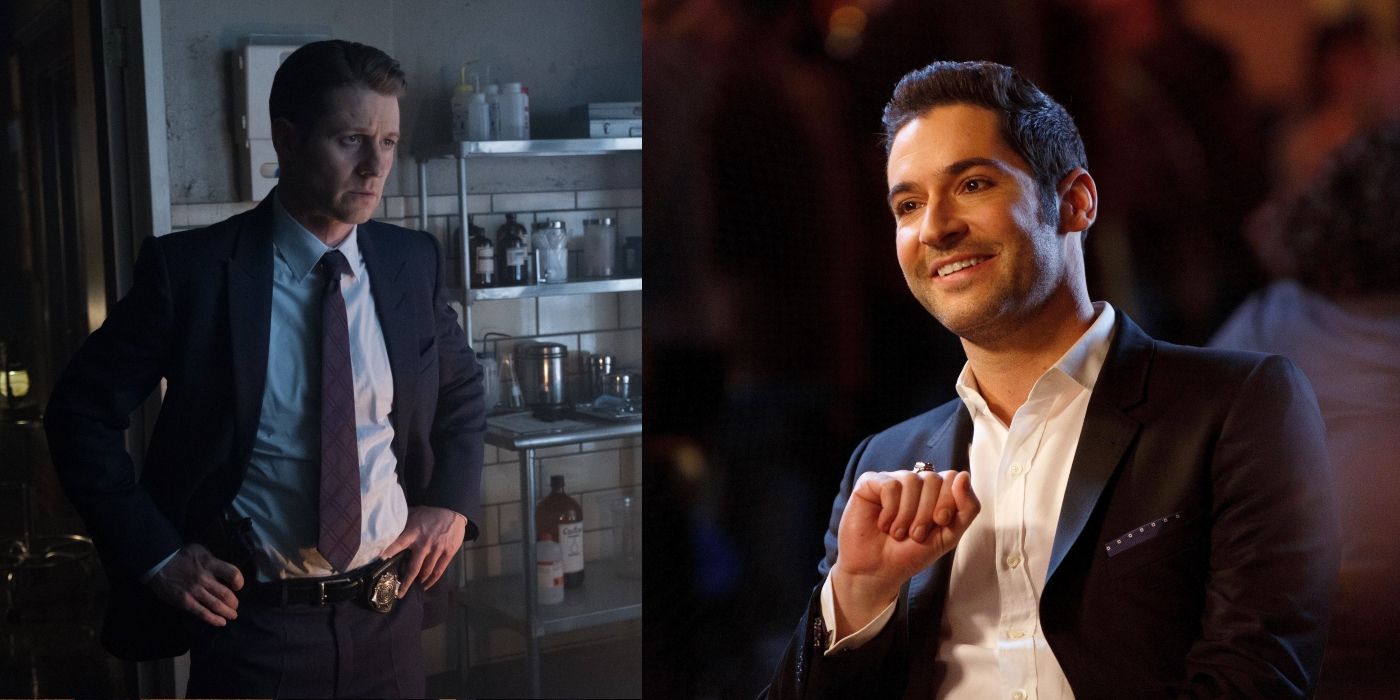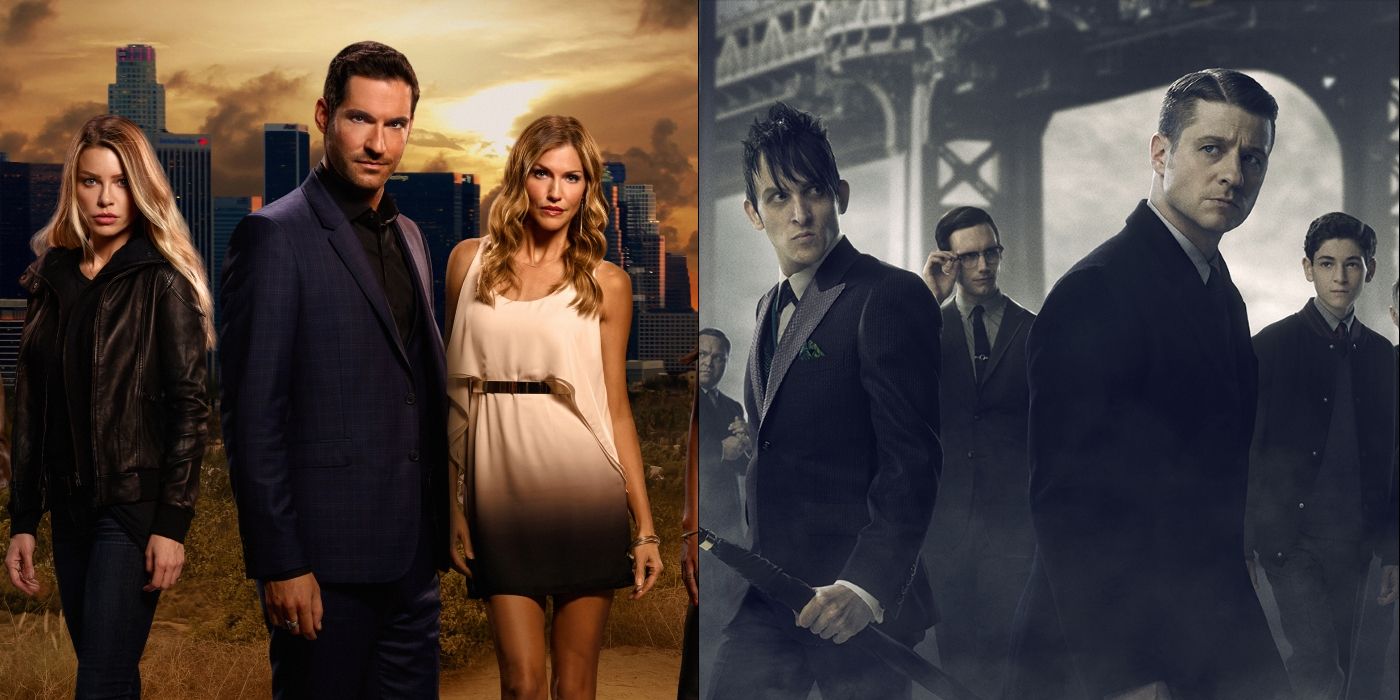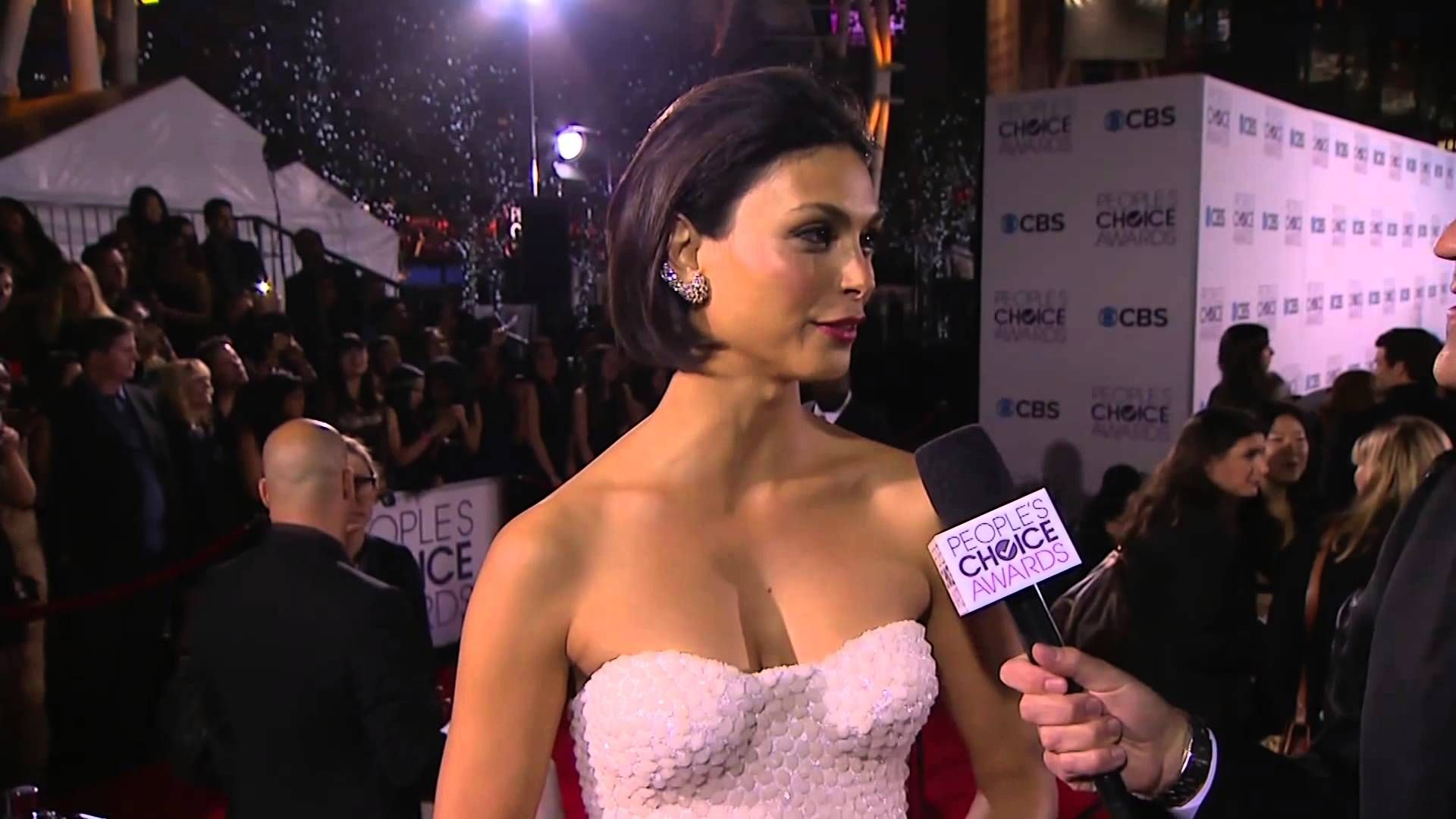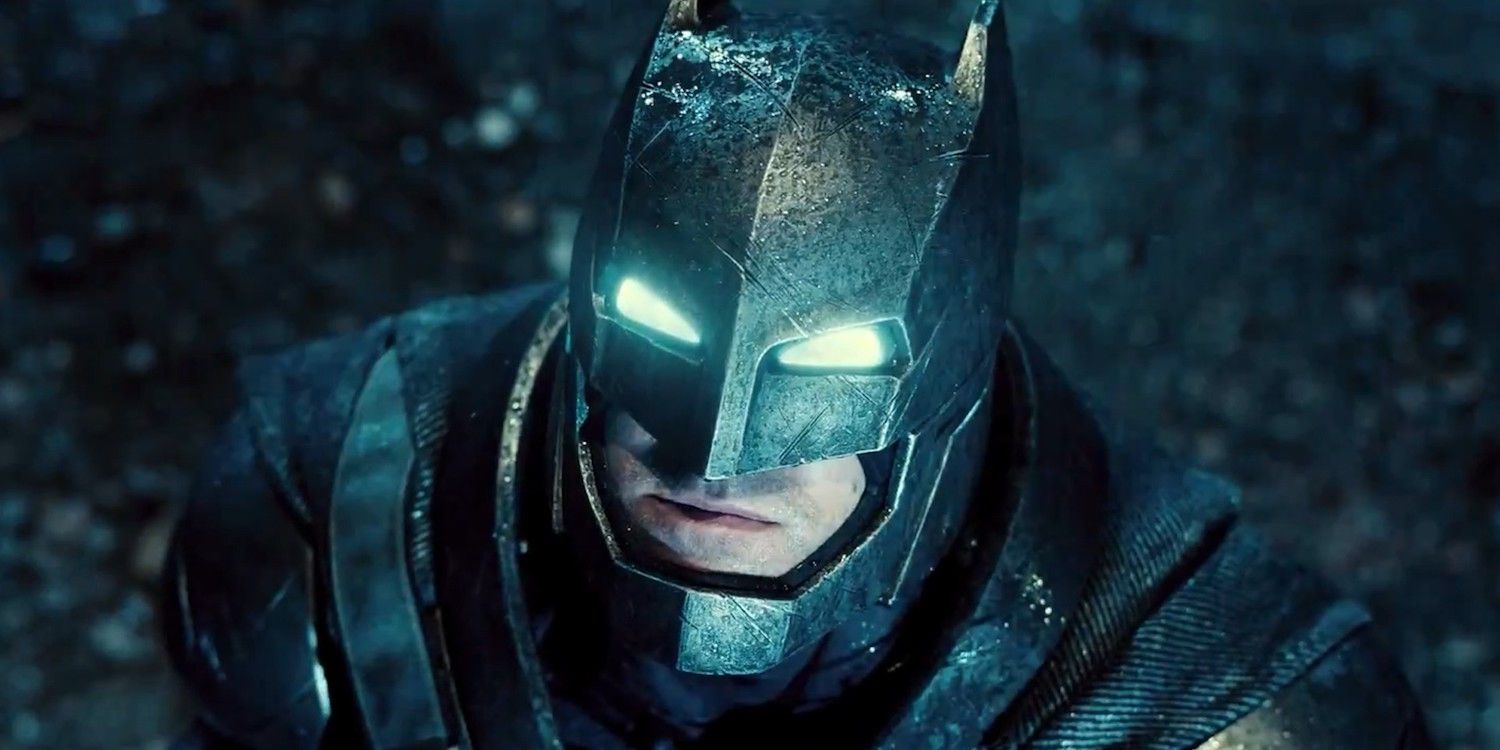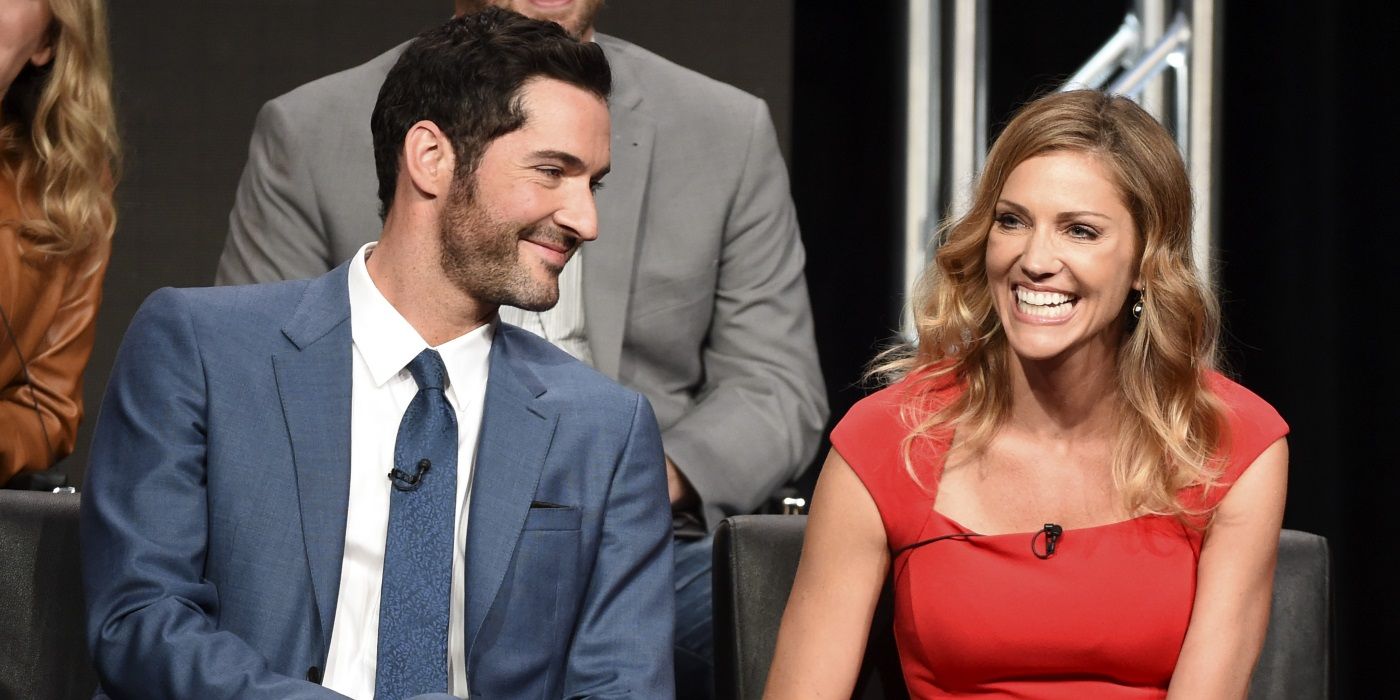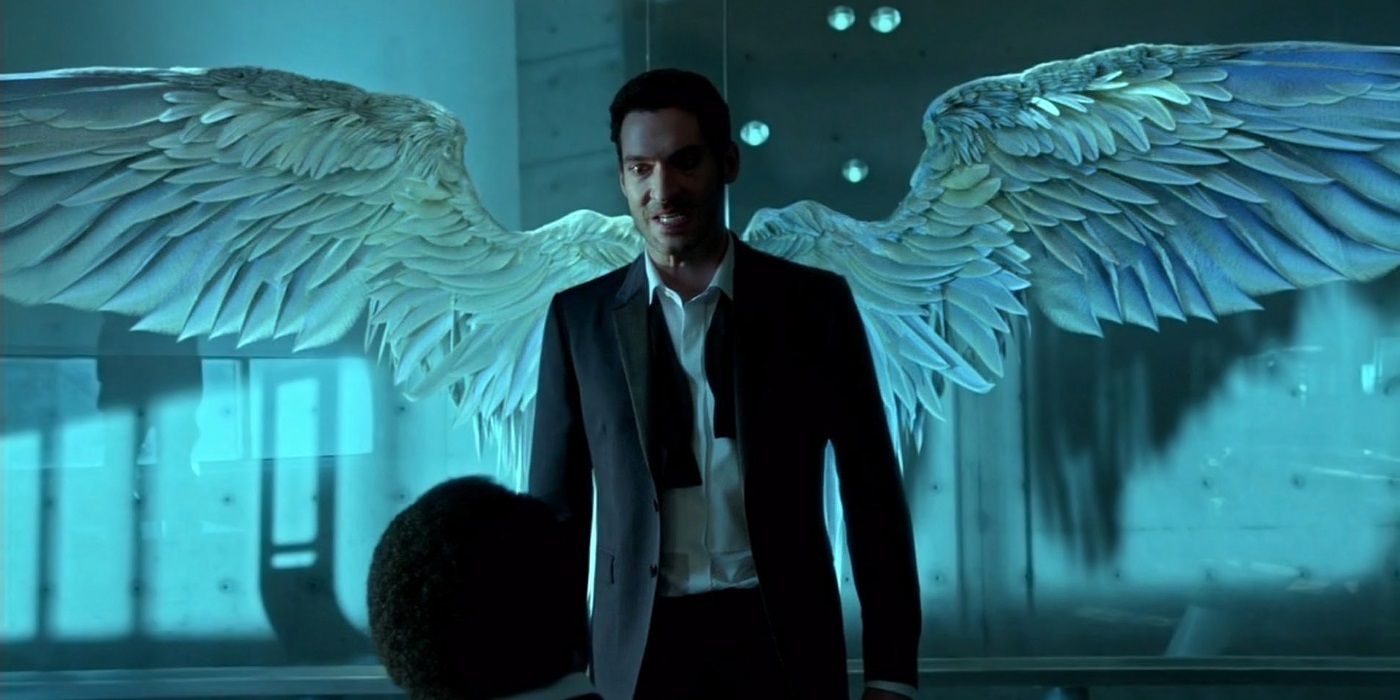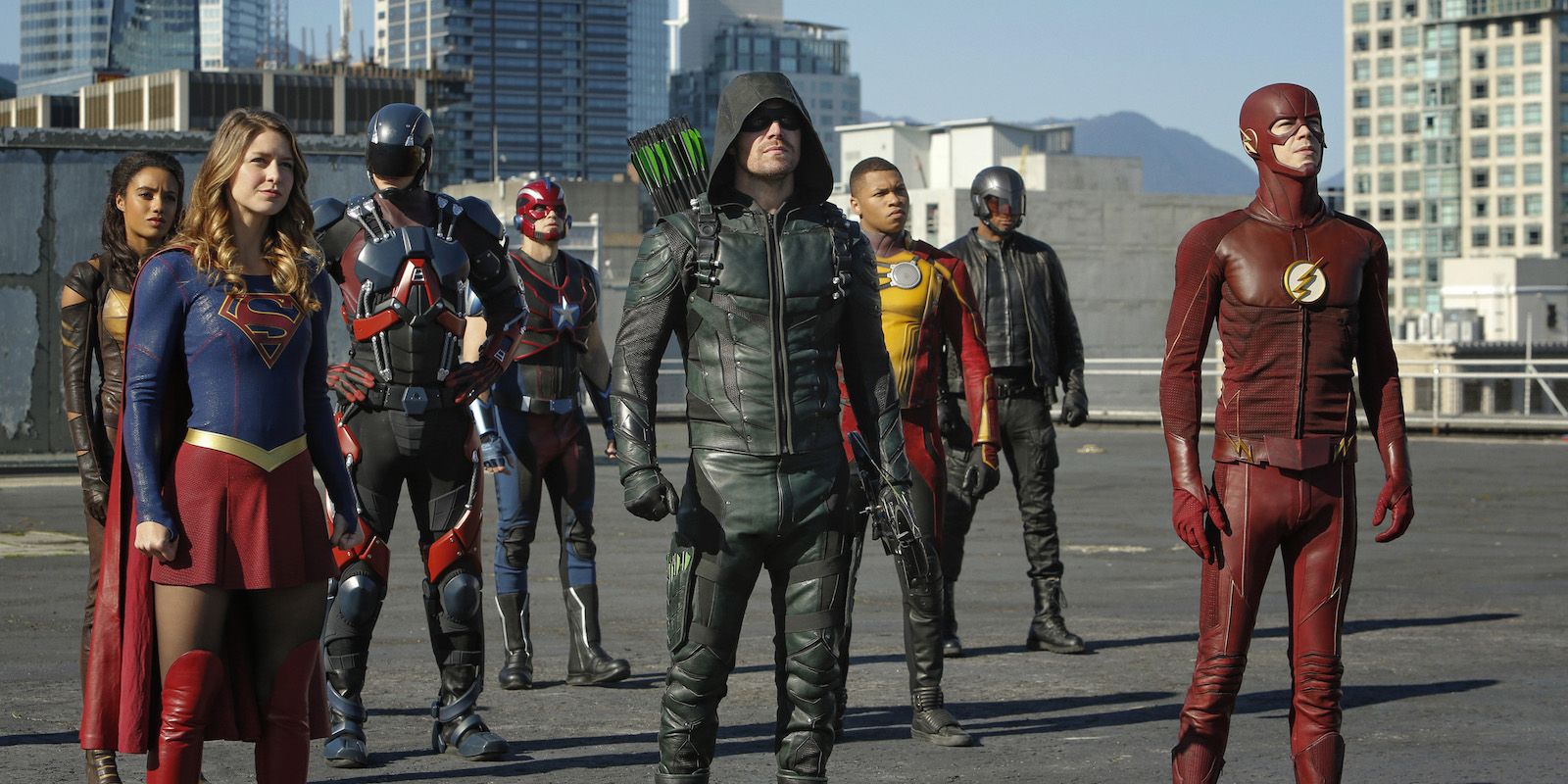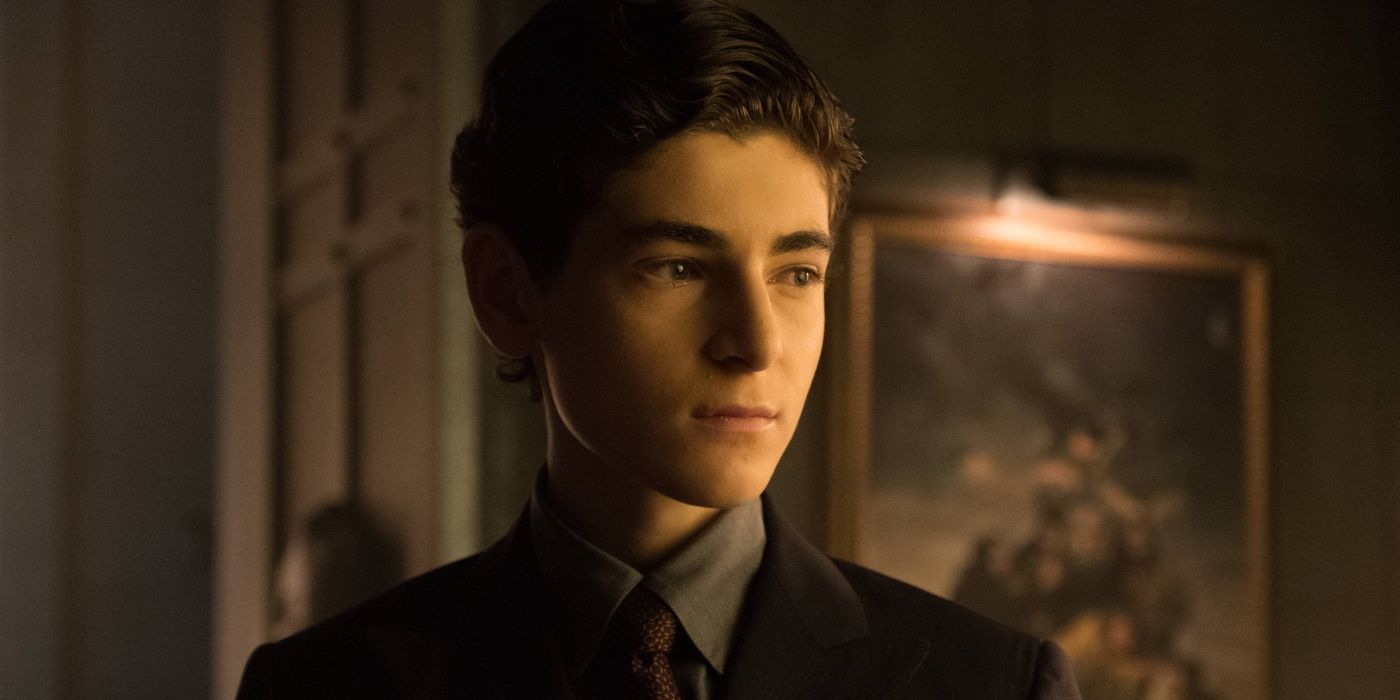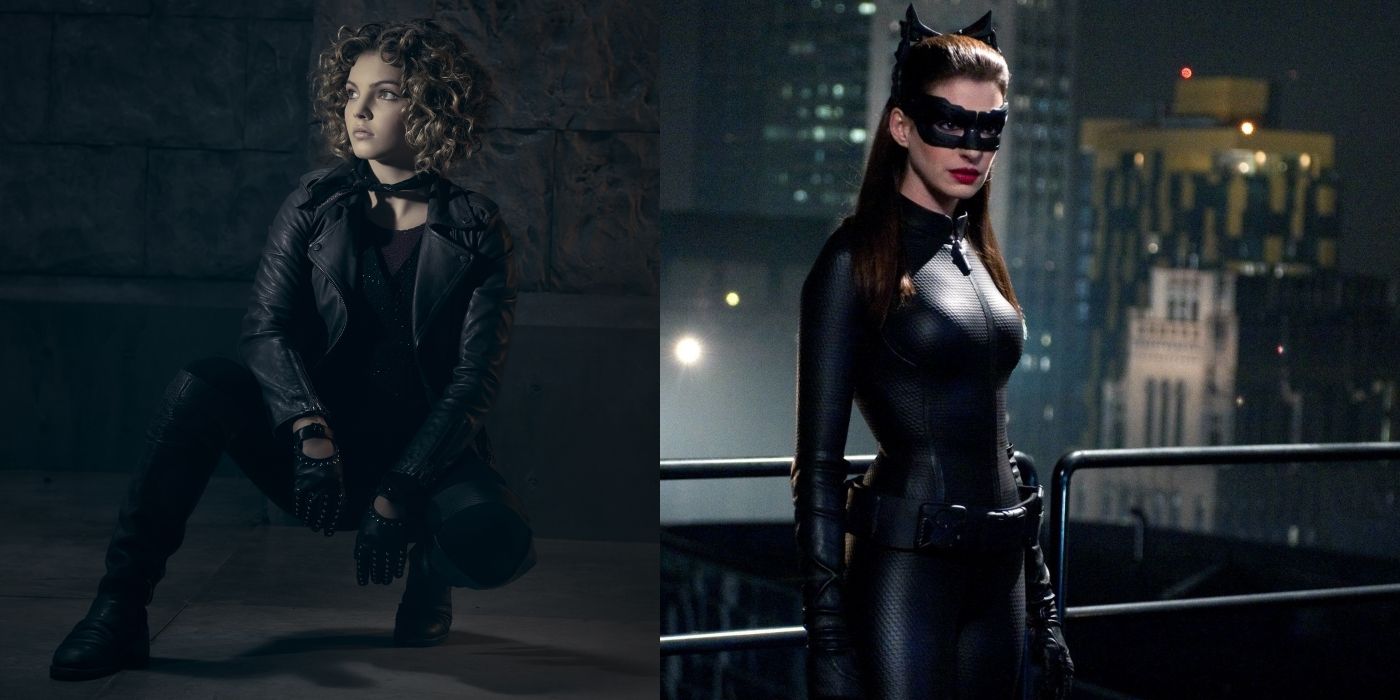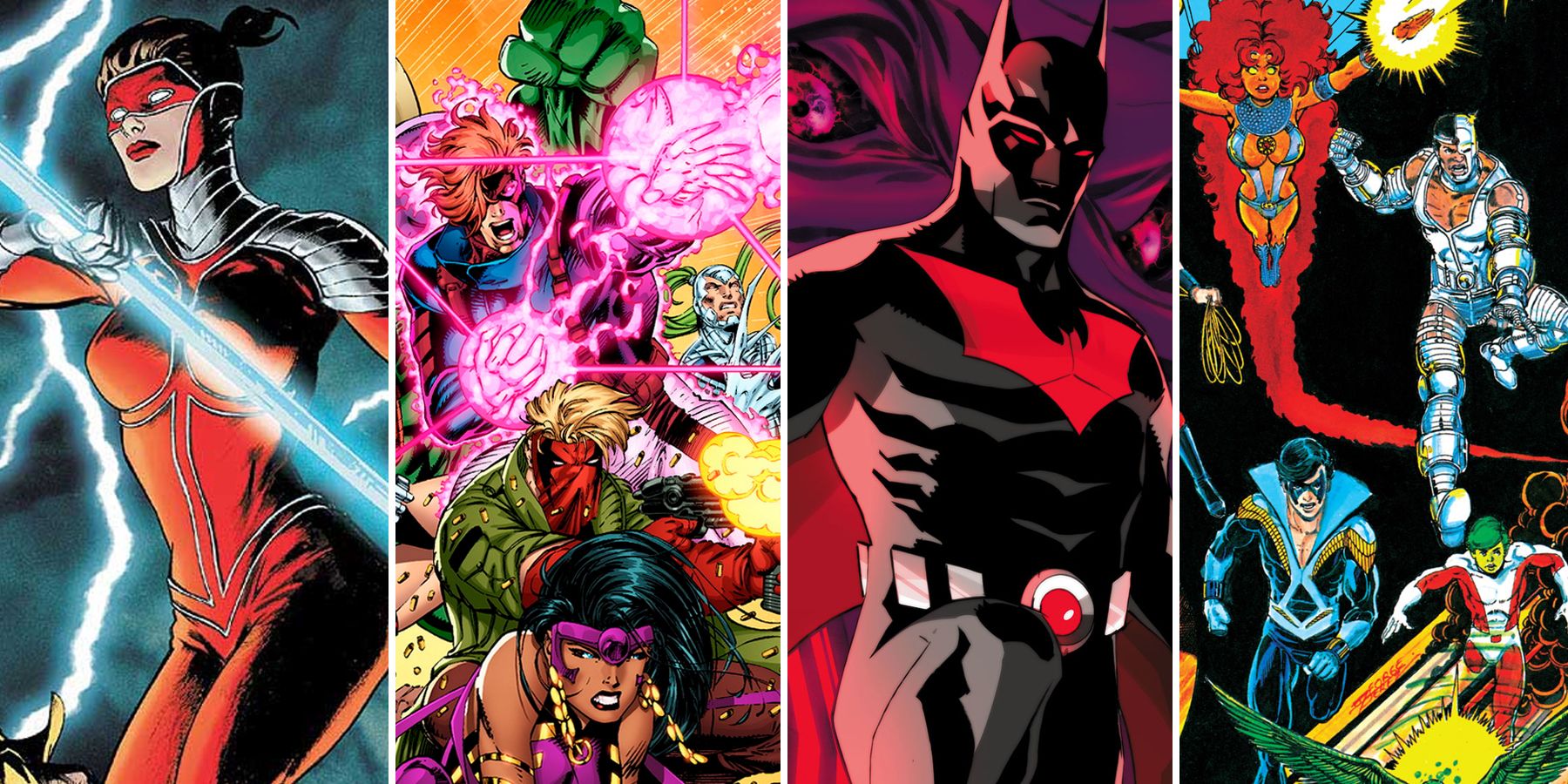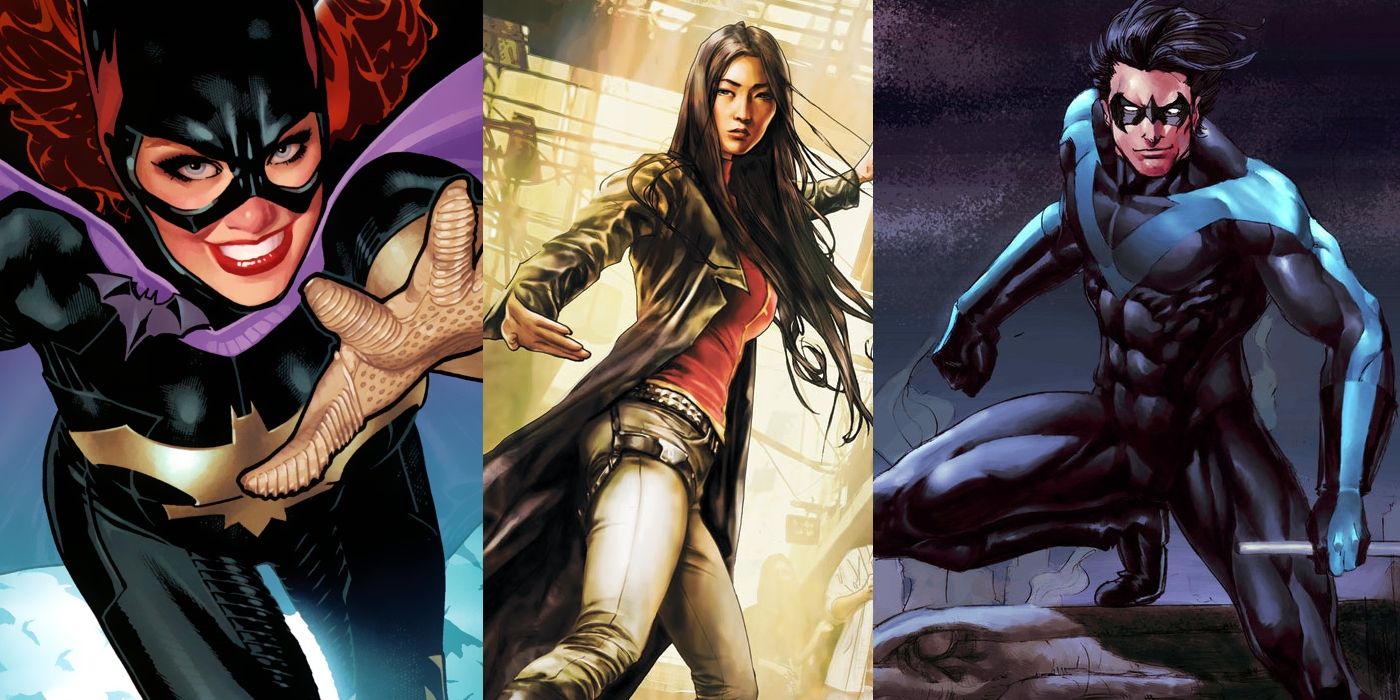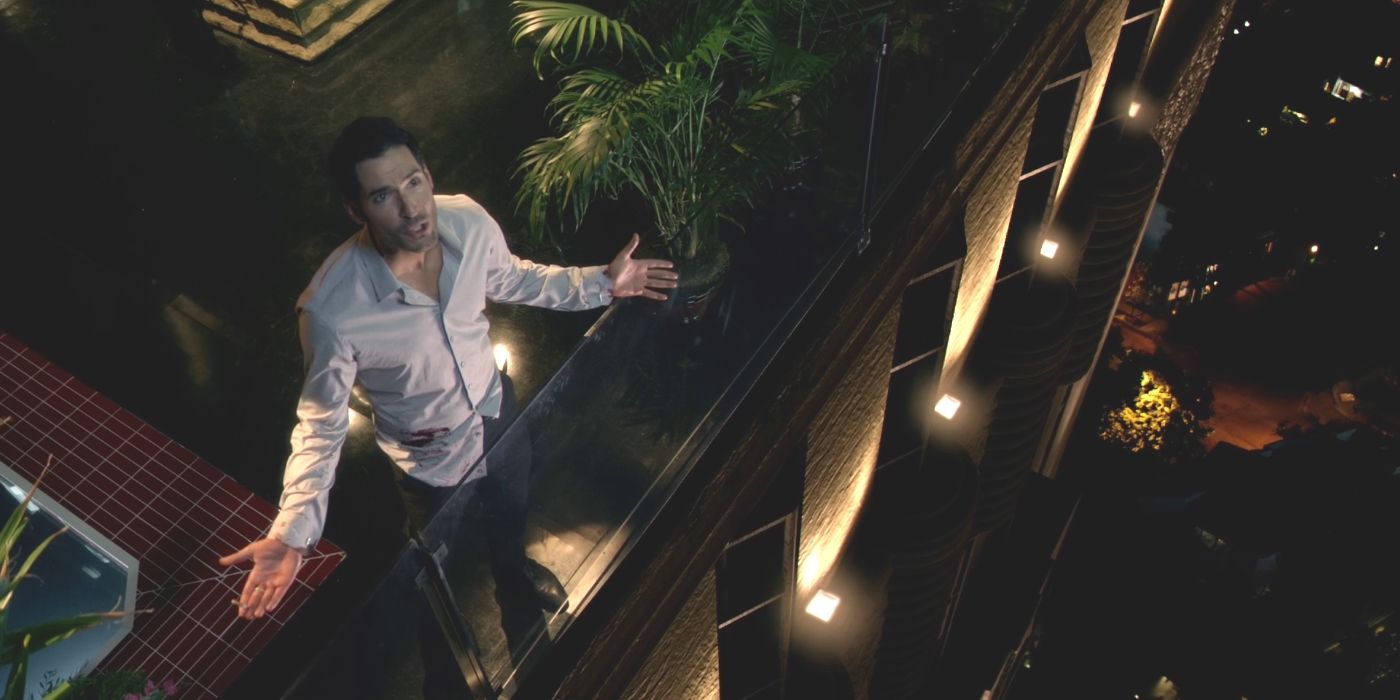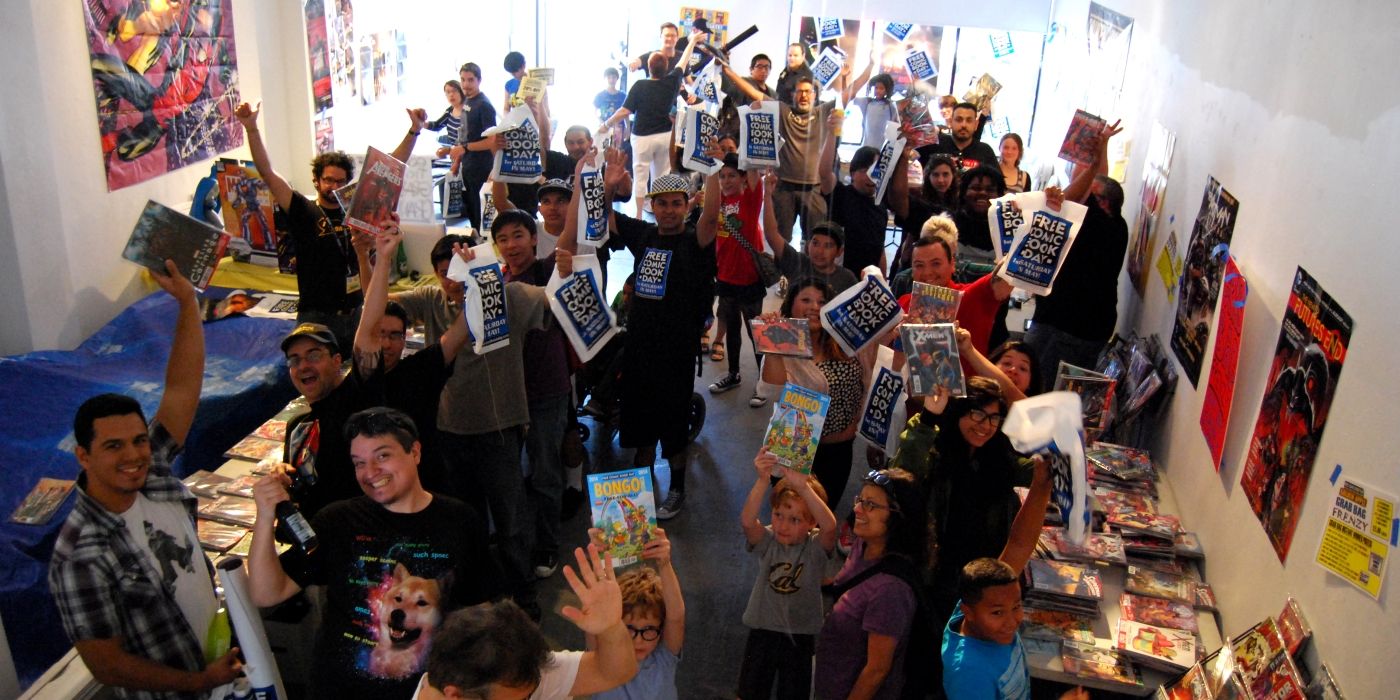Marvel has created an incredibly successful template for a shared superhero universe. After several years of watching Marvel rake in the bucks, DC is now on the same track, releasing multiple movies that share continuity with each other. That same trend is showing up on the small screen too. The Arrowverse has become the keystone in The CW's schedule, while Netflix is producing awards-worthy episodes about the world of the Defenders in order to tie its MCU properties together.
RELATED: Gotham: 15 Reasons Why It Is The Best DC Show
Meshing the worlds of "Gotham" and "Lucifer" would be challenging. Although they're both DC properties, they don't share the same universe in their source material like they used to. However, Lucifer has the ability to open portals to Earth, as well as an incredible grasp of time. It also wouldn't be much of a stretch to say the shows are simply set in different cities of the same United States. And if Fox added more superhero series down the road, the new shows could share a universe with either "Gotham" or "Lucifer" or both.
Here are 15 reasons Fox should create a shared superhero universe.
14 GOTHAM AND LUCIFER ARE ALREADY WELL ESTABLISHED
Something that's brand new is hard to sell to TV networks. No one wants to take a chance on an unproven, untested show because the risk is too high. TV pilots cost millions of dollars to produce. After paying executive producers, the cast, the director and other production employees, the network still has to pay for all the little things that make a TV show run, like transportation costs, lodging, location rental fees, equipment, catering and post-production costs. The network takes a gamble on greenlighting a TV series, because the show may never see high enough ratings to justify the cost.
If a TV show has some kind of proven credibility, however, a network is much more likely to not only to give the show a go-ahead, but also make a profit on it. If the star of the show, the format or the concept are already known entities, with a successful track record, the network can feel pretty confident that it will garner some solid ratings. That's why spin-offs are so popular with TV networks. The network knows that they're essentially expanding a successful TV show into two slots, which pretty much guarantees them great ratings for two TV shows. With "Gotham" and "Lucifer," Fox already has two successful TV shows on which to build.
13 INCREASED NETWORK CREDIBILITY
Critical praise is just as important as high ratings when it comes to keeping a TV show on the air. There are even times when critical praise is more important to a network than ratings, especially when a TV show wins awards. Positive reviews, raving fans and awards give can give a TV network credibility with audiences and advertisers alike. Both "Arrested Development" and "Community" had very low ratings, but their respective networks kept them on the air because they kept being nominated for awards, even winning sometimes.
Both "Gotham" and "Lucifer" have earned kudos from fans and critics alike, which means their creative teams know what they're doing. "Gotham" won the Critics Choice Television Award in 2014 for Most Exciting New Series, proving that TV critics and viewers liked what they were seeing. Fans have shown how much they love "Lucifer," because the Fox TV show was nominated this year for a People's Choice Award for Favorite TV Crime Drama, which also shows "Lucifer" is able to cross genres. Clearly, Fox could bottle some of these shows' aesthetic success and apply it to more shows that could share the same universe with these ones and increase their visibility.
12 TAKE ADVANTAGE OF RENEWED INTEREST IN DC
Thanks to "Batman v Superman: Dawn of Justice" and DC's full slate of upcoming movies, people who have never read comic books are now more interested in the DC Extended Universe. Everyone knows Batman and Superman and Wonder Woman, but now audiences are getting interested in some of DC's other superheroes, as well as villains, who are sharing the spotlight on the big screen. In 2016, Google searches for Steppenwolf increased after a deleted scene from "Batman v Superman" was released online. Google searches for Harley Quinn, Deadshot and Enchantress also went up with the release of "Suicide Squad." All of this shows people who were unfamiliar with these characters wanted to know more.
Fox could try to tap into that interest with its own shared universe. Creating a larger world that stretches across several shows would spark interest in fans. There's something about having a shared universe that allows fans to immerse themselves more deeply into the mythology than stand-alone shows. For instance, we get a kick whenever Luke Cage references what's been happening in Hell's Kitchen. It's like being in on the joke, being an insider, which builds brand loyalty and keeps fans coming back for more.
11 FILL PRIMETIME SCHEDULE
When basic cable became cheaper and more accessible, the big broadcast networks experienced a new level of competition. Broadcast networks struggled for an even bigger piece of the ratings pie once paid cable entered the market with their graphic violence and nudity. Filling their primetime schedules with quality TV programming that could nab approval from critics as well as attract eyeballs got more and more difficult.
Creating a shared superhero universe, however, would be an easy way to fill their primetime roster without taking a big risk. "Lucifer" and "Gotham" have been solid enough to run for two and three seasons, respectively. Fox could comfortably add shows that would expand on their worlds and fill up their timeslots. Those shows would be safe bets to fill up the rest of Monday night's schedule, or to anchor their own nights of programming. Having shoe-ins on the network's docket would free up time and resources for discovering new projects.
10 MORE SPECIAL EFFECTS
"Gotham" and "Lucifer" are very grounded TV series, meaning there aren't a ton of super powers in either show. We've seen some minor effects, but no big, showy CGI. The closest "Gotham" has gotten to displaying super powers is in the form of enhanced senses or physical prowess. Lucifer Morningstar has plenty of power, as does his brother and the demons on the show, but at its core, "Lucifer" is a police procedural, so there's not a lot of need for breathing fire.
However, creating a shared universe would give Fox more opportunities for some pretty impressive special effects. Three of the superhero TV shows on The CW rely heavily on special effects. If "Gotham" expanded its universe into other shows, Fox would have the chance to dazzle audiences with more visuals. Even now, if Lucifer visited Gotham City, the chances for neat special effects goes up because he'd probably have to use powers of some kind to make that leap.
9 BUILT-IN AUDIENCE
Banking on fans of Batman watching "Gotham" might have been a little bit of a gamble, but Fox was essentially going in already assured that enough fans would tune in for that show to, at worst, be a moderate hit. Once "Gotham" proved it didn't mangle its source material, more and more fans decided to give it a shot, partly because of critical reviews and partly because of world of mouth.
The same could be said of just about any superhero in the DCEU, so Fox could get a slam dunk if they expanded their TV shows into a shared universe. No matter how obscure a DC character is, there's bound to be a loyal fan following. (Azrael, anyone?) That small, but loyal, following of fans could easily grow into a solid ratings win, not only because of the people who would already know the character, but also because of fans who are curious to learn more. Then, characters from "Gotham," especially villains or secondary characters, could pop back and forth creating a fantastic line of continuity.
8 IT'S WORKING FOR THE CW
The CW jumped into the superhero genre when "Arrow" premiered in 2012. "Arrow" quickly caught the attention of fans and critics alike, so the network aired a backdoor pilot for "The Flash" in the second season that had everyone buzzing. Alongside "Arrow's" third season, "The Flash" premiered and The CW's shared universe was born. After that, The CW became the go-to network for superhero shows, with "Arrow" and "The Flash" getting a spectacular ratings bump every time they crossed over. Now, "Legends of Tomorrow" shares the same universe, there's a "Vixen" animated series airing in the off-season (with "Constantine" and other on the way) and The CW's second highest-rated series, "Supergirl," is connected through a portal.
Fox is already ranked higher than The CW when it comes to average network viewership, so if The CW can see success from using a shared superhero universe, Fox could easily boost its ratings by doing so as well. Perhaps a shared superhero universe would bump Fox up enough to make ABC nervous. Plus, letting "Gotham" and "Lucifer," or any possible future shows, share a universe would stamp Fox with the kind of recognizable and fan-friendly brand that makes The CW popular with Millenials.
7 TELL MORE STORIES FOR MAJOR CHARACTERS
The beauty of having your favorite superhero star in a TV series, compared to a feature film, is that the series can more fully explore storylines. Over many episodes, and hopefully many seasons, a series can explore all facets of a superhero. In the case of "Gotham," Fox is digging deep into Bruce Wayne's backstory by exploring what the city was like when he was a child, as well as the formation of the city's more formidable foes. On "Lucifer," the show explores not only Morningstar's story, but also a fish-out-of-water theme that allows for a lot of humor.
If Fox expanded their current shows to share a universe, we could learn more about each of the major characters just by how they would react to each other. For instance, the dynamic between Oliver and Kara was different than what we see from them when they're with their usual cohorts. Seeing Lucifer, with his light and cavalier attitude, on a ride-along with the ever-brooding and terribly grounded Jim Gordon would be illuminating for both characters.
6 TV-SIZE CAST
Creating a shared superhero universe on the big screen is not only ambitious in terms of storytelling, but also in terms of casting. Finding just the right actor or actress to play an iconic superhero has long been a tough problem to solve, because fans are so discerning when it comes to their favorite comic book characters. When you're casting for a feature film, the challenge also becomes financial. Studios need to cast someone who will be considered a box office draw, but won't break their budget.
Casting for TV, on the other hand, doesn't pose the same problems. It's helpful to have a familiar face headlining the series, but generally that face is familiar from a previous TV series, not a movie. With so many TV series running, today and in the past, the pool of popular actors and actresses is much larger. Ben McKenzie is a fantastic choice for Jim Gordon because he starred in two great TV series, "The O.C." and "Southland." Tom Ellis, who plays Lucifer, wasn't as recognizable when he was cast, but he has the experience to carry a show. If Fox added more shows to, say, the "Gotham" 'verse, they could flesh out the DCEU without breaking the bank.
5 MORE SUPERHEROES ON A SMALLER BUDGET
Paying for an A-list cast is a big expense for any superhero movie, but it's not the biggest expense. Production costs far outweigh the cast's salaries. The cost of production design, sets and costumes is high in order to faithfully represent superhero's world. Add in special effects and CGI and the production costs can balloon out of control, which means to put a superhero on the big screen, a studio has to fork out millions of dollars, which in turn means our chance of seeing obscure superheroes is slim. Now factor in all the hero-licensing costs.
TV budgets, however, are much tighter, so it's cheaper to have superheroes and villains on a small screen. Fox can introduce superhero after superhero on "Gotham" or "Lucifer" for a lot less. Having a shared universe on Fox means fans have a chance to see so many more of their favorite superheroes because the cost of bringing them to life is much less. In DC's comic books, Gotham City is ripe with superheroes, so Fox would have plenty to choose from who would be right at home in "Gotham's" dark tone and design.
4 CHANCE FOR SECONDARY CHARACTERS TO SHINE
As we mentioned above, spin-offs are a safe bet for networks when it comes to producing new TV shows. A network is comfortable breaking off a piece of a tried and true series to create a new show. The other benefit of spin-offs is it gives secondary characters a chance to shine. On The CW, for instance, Sara Lance has grown into a strong, smart, fun character on "Legends of Tomorrow," where she's given way more screen time than she had on "Arrow."
If Fox dipped their metaphoric toe into a large shared superhero universe, they could pluck one of the more fascinating characters from one of their already established series and give them their own show. For instance, a new series about Selina Kyle, with her mysterious past and shady dealings, matched with her soft heart and physical abilities, would be a great addition to the "Gotham" universe on Fox. So many more stories about a secondary character can be told when they have their own series.
3 MUSICAL EPISODES
As an actor, being a triple threat means you can act, sing and dance. Surprisingly, a large percentage of TV actors have musical talent. It's just that audiences never get to see those talents on display because music isn't the focus of their shows. Some TV shows, however, seem to be tailor-made to have a musical episode at some point. "Buffy the Vampire Slayer" had a fantastic musical episode, that also happened to be a pivotal story in the series. Meanwhile, the CW will air a crossover musical episode with stars from "Supergirl" and "The Flash" in March.
Creating a shared superhero universe on Fox would give more of "Gotham's" and "Lucifer's" actors a chance to shine. We've already had the pleasure of listening to Lucifer crooning a tune at the piano. D.B. Woodside, who previously starred in the musical series "Viva Laughlin," could join in, along with Rachael Harris, who has a musical theater background. They could teleport to "Gotham" and lead Robin Lord Taylor, who has a Broadway background, and Camren Bicondova, who has mad singing and dancing skills, in some big musical numbers. A dark musical with devilish themes? What could be better?
2 IT WOULD SPARK SALES IN COMIC BOOKS
A lot has been written about the huge wave of superhero entertainment that's happening right now. Certainly comic book fans are devouring all the movies and TV shows that star their favorite character. But what about the reverse? Are movie and TV audience's getting more interested in comic books?
Yes! Comic book sales have been rising since 2009, growing from $650 million a year to $1 billion a year, according to trade magazine "ICv2." It's no coincidence that "Iron Man," the first MCU Phase 1 movie, was released in 2008. Plus, Diamond Comic Distributors reports that DC's "Justice League vs. Suicide Squad" #1 was December's best-selling comic book title. In addition to films, TV shows, like "Agents of S.H.I.E.L.D.," have helped boost comic book sales. Marvel's "Inhumans vs. X-Men" #1 was the month's second best-selling release. A natural conclusion is that if Fox created more TV shows that shared the same universe as their current superhero shows, DC would reap the benefits in comic book sales.
1 CROSSOVER EPISODES
One of the first things comic book fans get excited about when two TV shows share the same universe is a crossover event. Seeing the audience's favorite superheroes team up in a big way, especially across multiple timeslots, is thrilling. It's not only a chance to see team-ups between characters who usually fight villains together in comic books, but also to see match-ups that might not normally occur, like seeing the police forces of "Gotham" and "Lucifer" working together on a crime.
Crossovers are a lot of fun for the audience and they usually garner solid ratings. Plus, fans of one show get to check out the characters of another show, and possibly like those characters well enough to add that show to their viewing queue. For example, the recent crossover extravaganza on The CW gave all four superhero shows their highest ratings yet. "Supergirl," "The Flash," "Arrow" and "Legends of Tomorrow" hit or tied their season highs in adults 18 to 49 during the "Invasion!" crossover. Whether or not the ratings increase continues, the network was able to raise their average viewer numbers, which helps when it's time to sell advertising. Fox could employ the same strategy by allowing their superhero shows to share a universe.
What would you like to see in a Fox shared superhero universe? Tell us in the comments!

